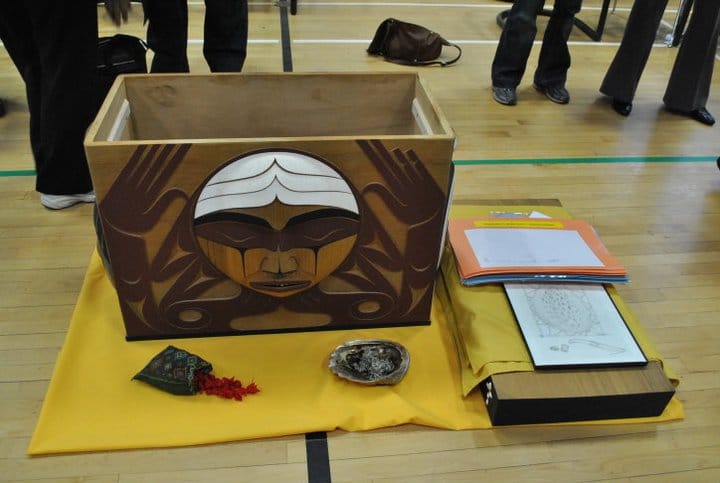Marking a new stage in the healing journey of residential school survivors, the Anglican Church of Canada will have a major presence at the upcoming closing ceremonies for the Truth and Reconciliation Commission (TRC).
Since the establishment of the TRC in 2008, General Synod leaders have attended seven TRC national events at which survivors described their residential school experiences. The ceremonies in Ottawa and TRC Final Report represent the culmination of this process.
From May 28 to June 3, a series of activities will take place in the nation’s capital to mark the closure of the TRC and the release of its final report, including a Reconciliation Walk, educational sessions, cultural events, a public feast and an invite-only closing ceremony at Rideau Hall.
Overlapping with the official ceremonies is a national event hosted by KAIROS Canada, the ecumenical organization through which the Anglican Church of Canada approaches some of its reconciliation work. Entitled Time for Reconciliation, the event will feature intergenerational gatherings on topics such as decolonization and respecting indigenous rights.
A delegation of General Synod leaders are set to attend the TRC closing ceremonies, including Archbishop Fred Hiltz, Primate of the Anglican Church of Canada, National Indigenous Anglican Bishop Mark MacDonald and others. The Diocese of Ottawa is taking a lead role in planning efforts.
Many Anglicans will visit Ottawa for the occasion. Deans in cathedrals across Canada are currently working on plans to host and create commemorative spaces and to engage Anglicans locally with indigenous people and the wider citizenry.
Public Witness for Social and Ecological Justice Director Henriette Thompson, who has co-ordinated Anglican participation in the TRC at the national level for seven years, said that “the Anglican contribution can best be described as a ministry of presence and a commitment to listen and learn on the part of non-indigenous Anglicans in the church.”
Having attended the national events where survivors shared their stories, Indigenous Ministries Coordinator Ginny Doctor noted that while often haunted by painful memories, many participants spoke about the healing they had experienced through the Anglican church.
“That was encouraging,” she said. “I think that’s part of what we have to be about…to restore the spirituality of our people that was broken through these acts of injustice and through these acts of abuse.”
Doctor saw the TRC event as representing the end of the “truth-telling” portion, but said that healing would be essential to reconciliation.
Anglican Healing and Reconciliation Fund Coordinator Esther Wesley said the TRC has helped bring awareness of the history of residential schools to the general public.
“So many aboriginal people, survivors, have been telling their stories over so many years…[the] TRC has made it credible, and the survivors have been affirmed.”
Despite the significance of the upcoming gathering, General Synod leaders stressed that the work of the Anglican Church of Canada in healing and reconciliation has only begun.
“I think people are watching inside the church and from outside to see if we mean it when we say we’re going to continue this work when it’s not mandated by a court,” General Secretary the Ven. Michael Thompson said.
He cited the Primate’s Commission on Discovery, Reconciliation and Justice for Indigenous Peoples as an example of the church’s commitment to carry the work forward.
Ongoing efforts by the Primate’s World Relief and Development Fundto bring water to homes in Pikangikum, Ont., he added, further display a “hands-on commitment to do the work that means that what we’re doing in Ottawa at the end of May and beginning of June is more than a façade, but actually represents the intention of our church.”
Interested in keeping up-to-date on news, opinion, events and resources from the Anglican Church of Canada? Sign up for our email alerts .

